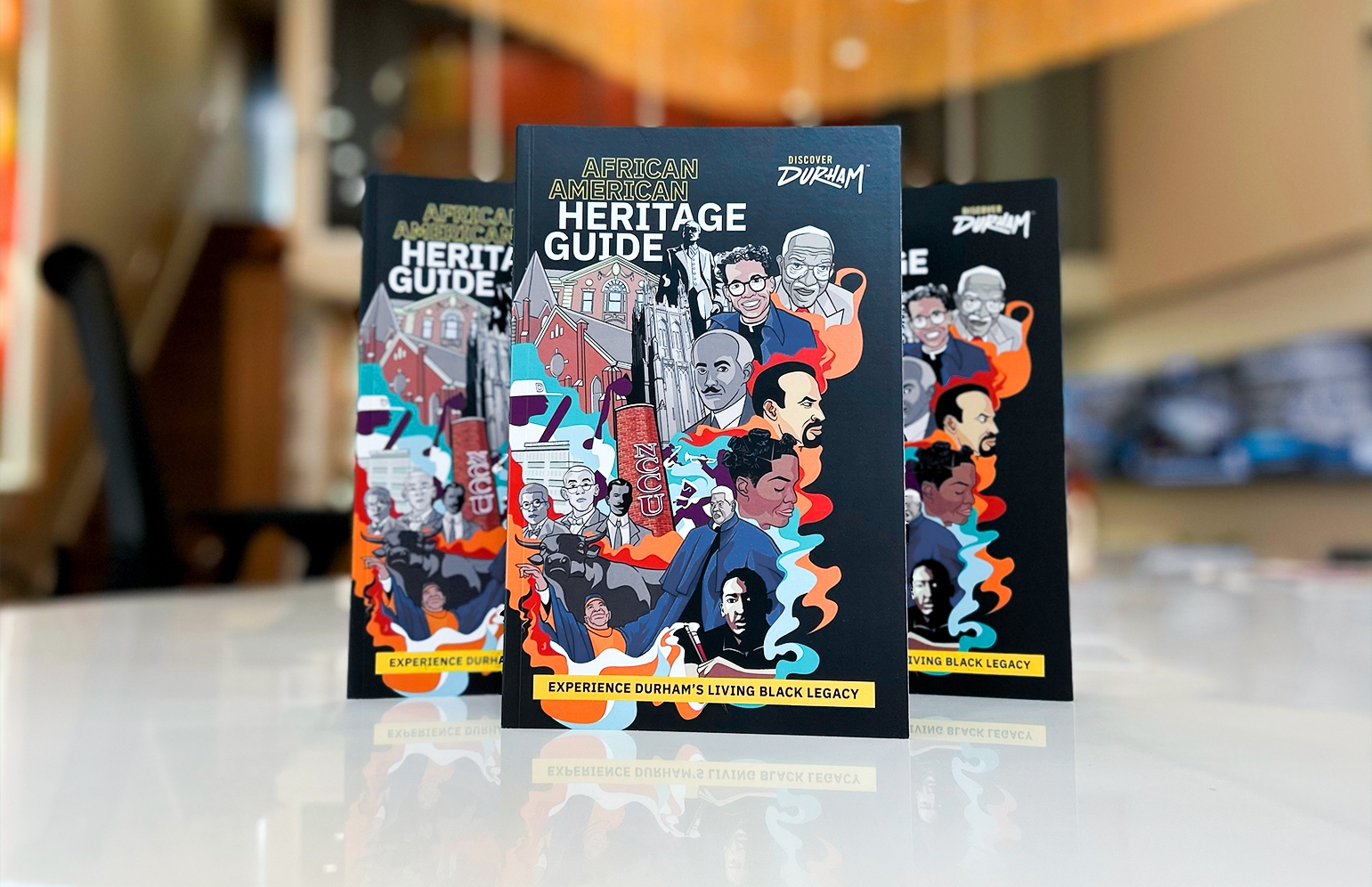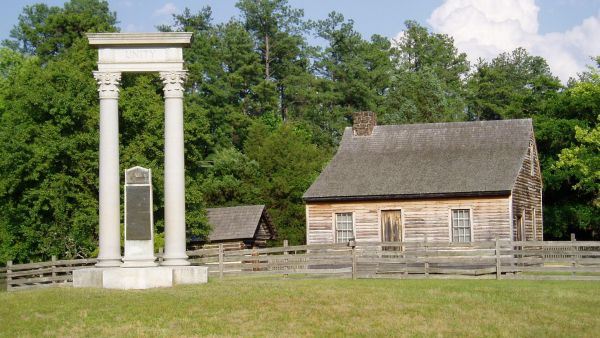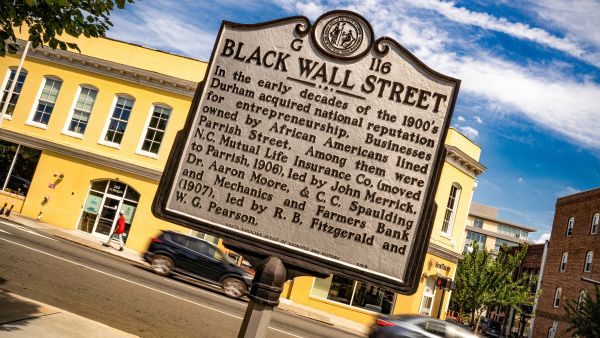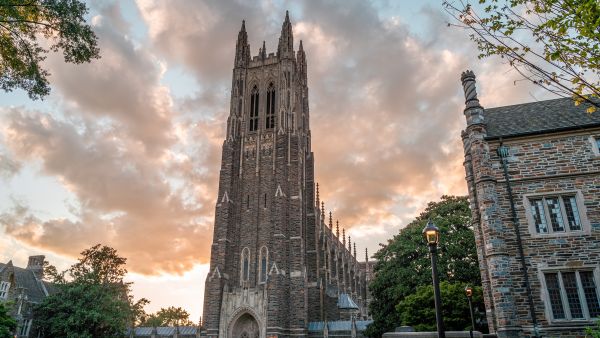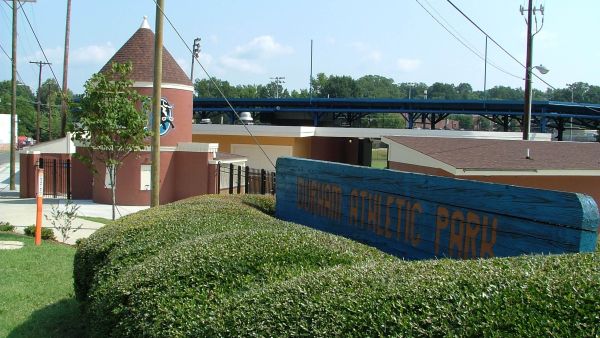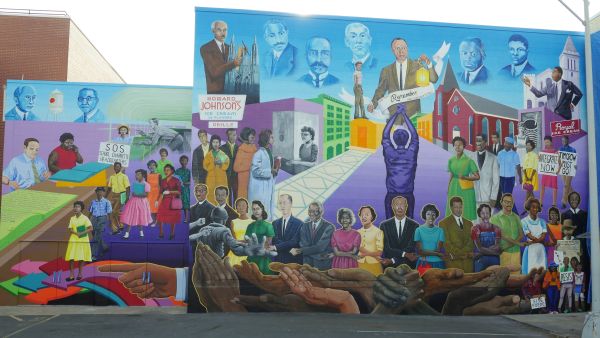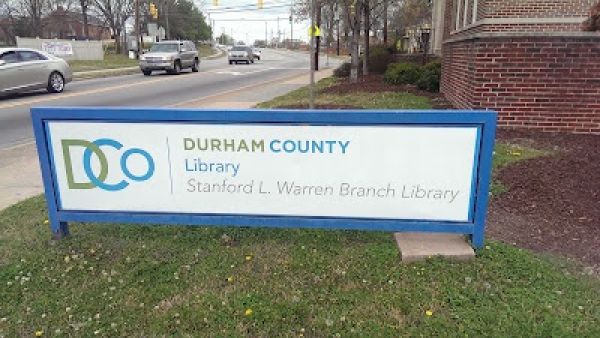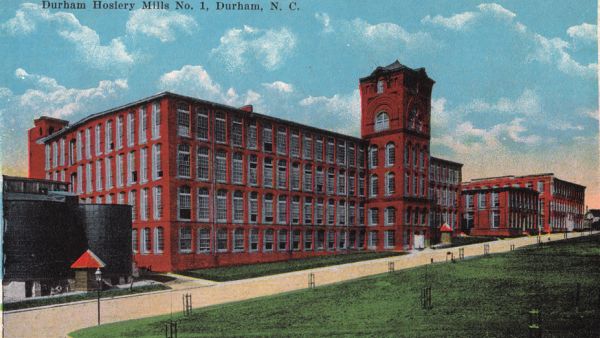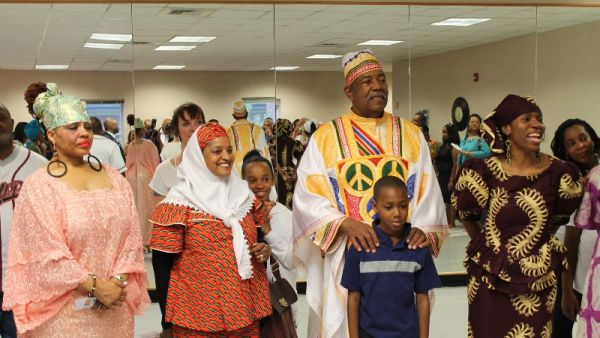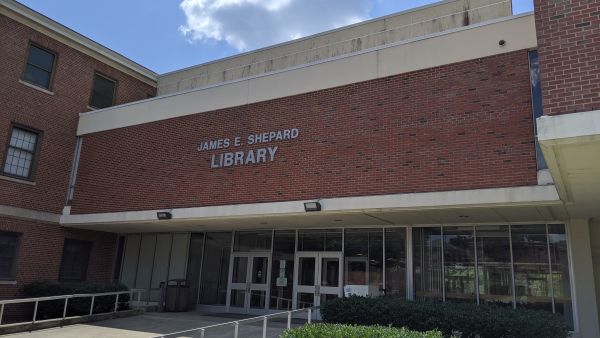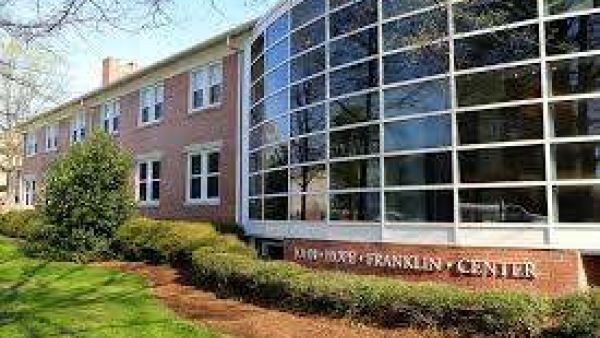Beechwood Cemetery
3300 Fayetteville St
Durham, NC 27707
Details
Open in Google Maps
Black Stories of Durham’s Past & Present
The history of Black people in Durham is a story of resilience and innovation, a legacy that has persevered into the 21st century.
This story is a part of our African American Heritage Guide Project, a printed guide and collection of stories about Durham's Black history, culture, community and entrepreneurship created by Black writers, poets and artists. Find more stories and information about the guide.
This is Black Durham
Durham is synonymous with Black excellence in all pillars of life: education, health care, sports, science, business and the arts. From the Civil War to the Civil Rights Movement, and into the present, the Black community has imprinted its indelible mark upon the Bull City and the nation.
As the winds of progress blew through the streets, billows of American Tobacco smoke dissipated, and the City of Medicine was built on its ashes, a place where Black folks came to be healed at Lincoln Hospital thirty-six years after President Lincoln’s emancipation reached the last corners of the country in Galveston, Texas.
Durham was a beacon of racial cooperation decades before other communities in the South. In the 1940s, all-Black and all-white basketball teams from North Carolina Central University and Duke University competed in secret because the pursuit of excellence and “the Brotherhood” of sports existed here long before Duke men’s basketball adopted the moniker. Oh, and the Eagles won that secret game.
At the dawn of the 20th century, Booker T. Washington traveled through Durham where he became acquainted with Black captains of industry like John Merrick, a former slave who became a titan of economic prosperity and established himself as a force for financial freedom in the Jim Crow South, founding businesses alongside other prominent entrepreneurs in health care, education, insurance, and banking, building Durham’s Black Wall Street brick-by-brick.
But Durham still fell victim to the same traps that handicapped true prosperity for Black people. As the city grew, new opportunities for “urban renewal” put historically vibrant neighborhoods like the Hayti community in the crosshairs. Black communities were subjected to large development projects where the government often used eminent domain to demolish neighborhoods for the “greater good.” When folks were forced to relocate, the practice of redlining used by banks and real estate firms sequestered Black families into less-desirable areas, reinforcing the negative health and economic outcomes that Black folks across the country had been subject to for decades.
While urban renewal and redlining tried to divide us, folks like civil rights activist Ann Atwater were building bridges. Bullish and steadfast, her approach to community organizing put Ann in direct conflict with the Durham chapter of the Ku Klux Klan and its leader, C.P. Ellis. The two opposing leaders would eventually co-chair a charrette that brought together Black and white residents to diffuse rising violence over school integration. Ann was so strong in her convictions that not only did the charrette lead to monumental change in the school system, she also developed a lifelong friendship with Ellis who deserted the Klan at the charrette’s conclusion.
Black history in Durham IS Durham’s history. Every step you take in this city is built upon the contributions of countless people, some of whose stories are still being written. Look down and you might see the “Fitzgerald bricks” that look like boomboxes, broadcasting the voices of blue-collar workers who literally built what we see today. Look up and witness the brilliance of architect Phil Freelon, whose unique designs span from the Durham transit station to the National Museum of African American History and Culture in D.C., the house of our nation’s Black excellence. Take a stroll through Duke campus and marvel at the work of Julian Abele, a prolific architect in his day who is responsible for two of Durham’s most iconic landmarks: Cameron Indoor Stadium, a mecca of basketball culture, and Duke Chapel, renowned for its unique gothic design.
The legendary New York City hip-hop artist Big Daddy Kane once proclaimed he found “Brooklyn in the South.” Durham, like its spiritual sister city to the north, has been a haven for Black creativity. Fitting that the rapper made his declaration on a track with Little Brother, Durham’s own celebrated, prolific hip-hop group. The Bull City is home to Black tastemakers like fashion editor Andre Leon Talley, painter and illustrator Ernie Barnes and jazz singer Nnenna Freelon who have traveled the world to showcase Durham’s artistic genius for an international audience.
The streets of Durham today are a mosaic of memory and hope, its walls adorned with murals that tell stories of old heroes and new challenges. From the hallowed halls of NCCU to the revived corridors of Black Wall Street, the Black community continues to be a wellspring of innovation and cultural richness. The city itself, much like the Hayti district of old, stands as a beacon of Black achievement and a testament to the power of community and perseverance.
Thus, the narrative of Black Durham weaves through the fabric of American history, a vibrant thread in the tapestry of our nation. It is a story of triumph and tribulation. In Durham, the past is not simply remembered; it is championed, learned from, and built upon, a foundation as resilient as the spirit of those who have walked its paths.
Durham's Black Stories

Durham’s African American Heritage Guide
Experience Durham's Living Black Legacy
Welcome to Black Durham – where the past meets the present, and African American stories continue to unfold with grace, dignity, and pride. May this guide offer you moments of understanding, connection and celebration as you embark on this unforgettable exploration of African American heritage in the Bull City.
Learn More
Durham’s Black History
Telling stories of Durham’s past and present
Like much of the antebellum South, Durham was home to several plantations during the 1800s, including Stagville, one of the largest in the region. Approximately 900 enslaved Black people lived and worked on its 30,000 acres. These individuals' lives are well documented: they worked as laborers, skilled craftsmen, and artisans who built most of the plantation buildings. Within their quarters, rich cultural traditions were cultivated, including crafts, music, dance, and social customs often continued from African origins.
Learn More
48 Hours in Black Durham
Exploring Durham's Black-Owned Gems
Journey to a place filled with a flavorful mix of Southern charm and impressive attractions—a destination that will leave you exhausted and refreshed all at once. Durham sets the stage for creating a travel itinerary for those who aren’t afraid to explore, lean in and lean back. So, pace yourself and explore with this curated two-day experience showcasing the best of Durham’s Black cultural attractions, businesses and eateries.
Learn More
Events Celebrating Black History and Culture
Celebrating Black history, culture and traditions through events
Grit, fortitude, and the unapologetic pursuit of justice are lasting legacies of a community that influenced the progress of Americans toward equality from coast to coast. As Durhamites, we stand in the shadow of those who came before us, strengthened by the seeds of justice and equality planted here long ago. We invite you to reflect and experience the history of Black people and celebrate Black culture through Durham events and activities.
Learn More
Black Wall Street
Durham's Historic Parrish Street
“Three men began the economic building of black Durham: a minister with college training, a physician with professional training, and a barber who saved his money”- W.E.B. DuBois
Learn about the people and businesses that built Durham's self-sustaining Black community.
Learn More
Hayti Heritage Center, Then and Now
Hayti's Hub for Cultural Enrichment and Arts Education
“It has been my honor to serve as guiding steward of the Hayti Heritage Center, a cultural treasure rooted in the Hayti community. The Foundation has provided quality arts programming for nearly 50 years while preserving the incredible heritage of a historic venue that dates back to 1891. The city is enriched by the Hayti Heritage Center, [one of] the last remaining original structure[s] from Durham’s iconic Black Wall Street district.” - Angela Lee, Executive & Artistic Director of Hayti Heritage Center
Learn More
North Carolina Central University
No Ordinary, Common Barnyard Fowl
“That audacious belief of our people – that in most ordinary men and women there reside the most extraordinary possibilities, and that, if we keep the doors of opportunity open to them, they will amaze us with their achievements.” Dr. James E. Shepard
No visit to Durham is complete without seeing the stunning campus of NCCU and learning its history as the first state-supported liberal arts college established for African Americans in the nation.
Learn More
Durham's Creative Soul
Exploring Durham's Vibrant Black Arts Scene
Durham's Black artists are the heartbeat of a city pulsing with cultural vibrancy, and anyone and everyone can find a pocket of creativity and craft their community, regardless of interest. Here, every brushstroke tells a story, every lyric resonates with truth and every performance ignites the spirit of curiosity.
Learn More
Advocacy & Activism in the LGBQIA Community
Representation and Solidarity in the Black Community
Various political, economic, cultural and social influences converged to make Durham a place where LGBTQ advocacy flourishes. And the fight for LGBTQIA rights isn't relegated to institutions and organizations; it’s also going down on dance floors, bookstores and big and small screens.
Learn More
Durham’s Black-owned Businesses
Reclaiming history with present-day business ventures
Durham has a strong history of diversity and entrepreneurial prowess. Black Wall Street became a moniker for Durham's West Parrish Street, a hub of Black-owned business that blossomed during the early 1900s. What you may not have read in your school textbooks was the thrilling historical narrative of Durham's unapologetic position as a successful urban epicenter at the turn of the century.
Learn More
City of Champions
A History of Black Achievement in Sports
Discover the athletic legacy of Durham through the city's Black athletes, coaches, programs and establishments.
Learn Morehistorical sites
See something wrong with this listing? Contact blog@discoverdurham.com.
Bennett Place State Historic Site
4409 Bennett Memorial Rd
Durham, NC 27705
Details
Open in Google Maps
Bennett Place State Historic Site
4409 Bennett Memorial Rd
Durham, NC 27705
Phone:
(919) 383-4345
Website
Black Wall Street / Historic Parrish Street
106 W Parrish St
Durham, NC 27701
Details
Open in Google Maps
Black Wall Street / Historic Parrish Street
106 W Parrish St
Durham, NC 27701
Duke University Chapel
401 Chapel Dr
Durham, NC 27708
Details
Open in Google Maps
Durham Athletic Park
500 W Corporation St
Durham, NC 27701
Details
Open in Google Maps
Durham Civil Rights Mural
110 Morris St
Durham, NC 27701
Details
Open in Google Maps
Durham County Library, Stanford L. Warren Branch
1201 Fayetteville St
Durham, NC 27707
Details
Open in Google Maps
Durham County Library, Stanford L. Warren Branch
1201 Fayetteville St
Durham, NC 27707
Phone:
(919) 560-0270
Website
Durham Hosiery Mill Apartments
804 Angier Ave
Durham, NC 27701
Details
Open in Google Maps
Hayti Heritage Center
804 Old Fayetteville St
Durham, NC 27701
Details
Open in Google Maps
Hillside Park
1301 S Roxboro St
Durham, NC 27707
Details
Open in Google Maps
James E. Shepard Memorial Library
1801 Fayetteville St
Durham, NC 27707
Details
Open in Google Maps
James E. Shepard Memorial Library
1801 Fayetteville St
Durham, NC 27707
Phone:
(919) 530-6473
Website
John Hope Franklin Center
2204 Erwin Rd
Durham, NC 27705
Details
Open in Google Maps
